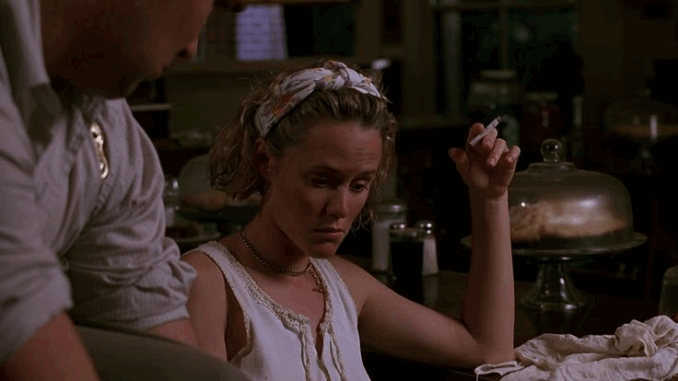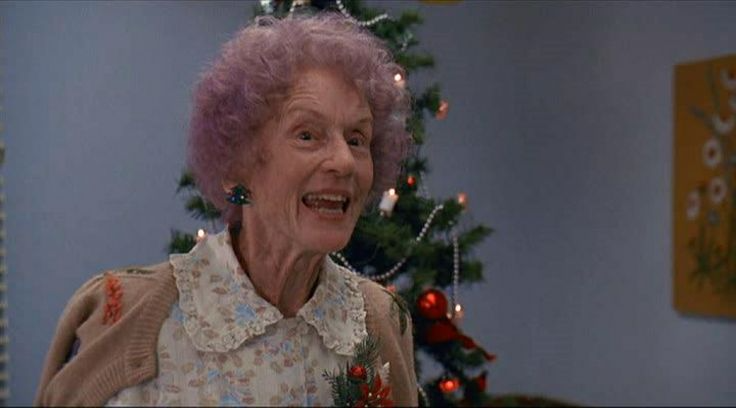
In Fried Green Tomatoes, amidst the vibrant characters and dramatic turns of the story, one figure often remains in the background — quiet but ever-present. Sipsey, the Black cook at the Whistle Stop Café, doesn’t have as many lines or center-stage moments, yet her psychological presence is massive. She represents something rare and profound: the power of invisible emotional labor, generational love, and survival in a world that rarely acknowledged her worth.
Through the lens of psychology and cultural analysis, Sipsey’s relationship with the Threadgoode family, Ruth, Idgie, and her son Big George, offers an intimate look at how trauma, systemic oppression, and deep maternal love shape the inner life of a woman whose strength is never loud — but always felt.
The Archetype of the Caregiver: But With a Twist
Psychologically, Sipsey reflects the Caregiver Archetype, as described by Carl Jung — someone who protects and nurtures others, often at the expense of themselves. But Sipsey’s role subverts the simplicity of that label.
She’s not a flat stereotype of the “mammy” figure from Southern fiction. Instead, she’s a multidimensional person whose caregiving is not only instinctual — it’s also strategic, born from the need to survive in a racist, segregated South.
Her love is real. But her role is not always freely chosen. Sipsey walks a psychological tightrope between genuine affection and the emotional labor demanded of her by the power structures of her time.
Trauma, Resilience, and Generational Burden
Sipsey likely grew up during Reconstruction or the post-slavery era in the American South — a time when Black women were often placed in positions of servitude and stripped of autonomy. Though we don’t get her backstory explicitly, her psychological profile is shaped by generational trauma — a concept in which unresolved grief, fear, and survival behaviors are passed down through generations.
But unlike many trauma victims who emotionally shut down, Sipsey becomes a pillar of resilience. She pours her energy into the people around her, especially her son Big George and later Ruth and Idgie. Her cooking becomes not just a trade, but an act of care, cultural continuity, and emotional grounding.
Food, in Sipsey’s world, is love. It’s therapy. It’s resistance.

The Dual Role: Mother to Many
Sipsey is the biological mother of Big George — but her maternal instincts extend far beyond blood. She becomes a surrogate mother to Ruth, to Buddy Jr., and in many ways, even to Idgie. She provides consistency, safety, and emotional containment — all key traits of a secure attachment figure.
Her kitchen is a sanctuary. Her eyes miss nothing. She knows when to speak and when to remain silent. And in moments of crisis — like Frank Bennett’s murder — she acts swiftly, with a quiet resolve that shows just how fiercely she protects those she loves.
She is the embodiment of protective attachment — someone who may not have power in the world at large, but who becomes a powerful force within her own domain.
The Ethics of Love and the Weight of Justice
One of the most psychologically complex moments in the film comes when Sipsey kills Frank Bennett to protect Ruth and Buddy Jr. This act of violence is not impulsive — it’s calculated, and done from a place of love.
From a moral psychology standpoint, Sipsey is operating under care-based ethics — a framework where decisions are made not through legalistic reasoning, but through empathy and responsibility to others. In her eyes, protecting the family — particularly Ruth and the baby — is more important than obeying laws that were never meant to protect people like her anyway.
Her actions also reflect the deep psychological burden of being both caregiver and protector in a hostile world. Her calmness after the murder isn’t coldness — it’s the result of a lifetime of learning to stay composed, to survive, to defend her people without fanfare.
Invisible Labor and the Emotional Backbone of Whistle Stop
While Idgie and Ruth are often seen as the heart of the café, it is Sipsey who keeps the heartbeat steady. She organizes the kitchen, prepares the meals, tends to the emotional climate. This is emotional labor — the unseen work of holding everyone together.
From a sociological and psychological point of view, Sipsey is what family systems theory would call the “emotional regulator” of the group. She’s the one others turn to when they don’t know what to do. She doesn’t demand credit. But she is the glue.
In this way, Sipsey reflects the real-life experience of many Black women throughout history — holding up households, tending to others, and carrying the emotional burden in silence.
A Love That Is Never Theatrical, Always Fierce
Sipsey’s love is not the love of grand speeches or cinematic gestures. It is fierce, loyal, and subtle.
She never tells Big George she loves him — but she feeds him, protects him, raises him. She never declares her allegiance to Ruth — but when Ruth is in danger, she acts without hesitation.
This kind of love is deeply embodied — shown through presence, action, and unwavering commitment. It is a maternal love forged in hardship, tempered by wisdom, and expressed in quiet, daily sacrifice.
Sipsey as the Soul of Whistle Stop
Though she doesn’t dominate the screen time, Sipsey is the soul of Whistle Stop. She represents a moral compass, a stabilizer, and a reminder that true heroism is often invisible.
In psychological terms, Sipsey is the “secure base” — the person who makes others feel safe enough to become who they truly are. She allows Ruth to heal. She gives Idgie space to rebel. She raises Big George with dignity. And she helps Buddy Jr. grow in a world that is often harsh.
The Quiet Power of Sipsey
In Fried Green Tomatoes, Sipsey doesn’t need a spotlight to matter. Her power is not in her voice — it’s in her actions. Her love doesn’t ask for recognition. It is the recognition — of pain, of worth, of humanity.
Psychologically, she teaches us that not all strength looks the same. That love can be fierce without being loud. And that the people who hold us up behind the scenes are often the ones who carry the most weight.
Sipsey is not just a side character. She is the hidden heart of the story. A quiet revolutionary. A mother to the motherless. A protector to the vulnerable. And a reminder that sometimes, the greatest heroes are the ones history forgets — but our souls remember.
